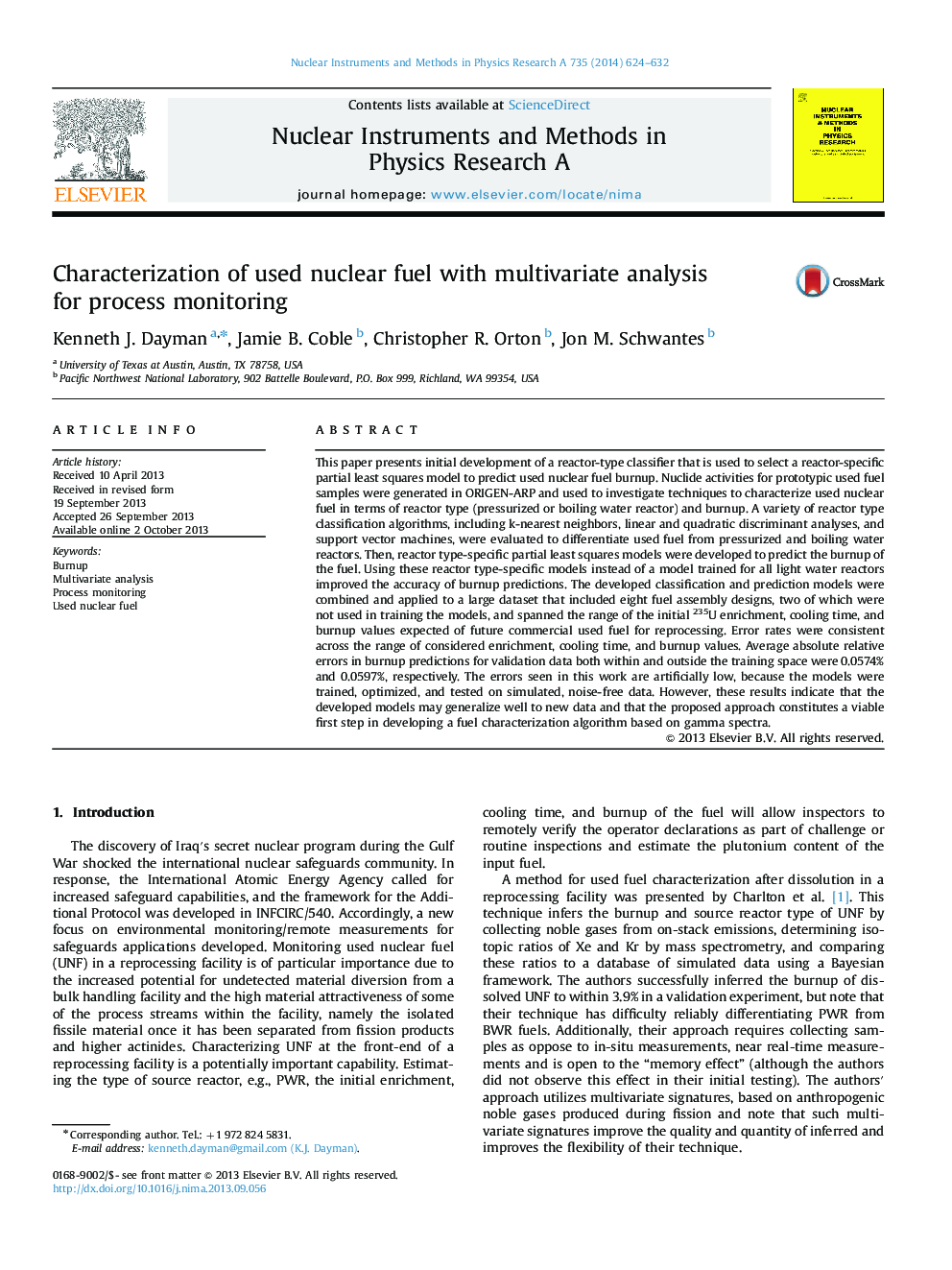| Article ID | Journal | Published Year | Pages | File Type |
|---|---|---|---|---|
| 8178669 | Nuclear Instruments and Methods in Physics Research Section A: Accelerators, Spectrometers, Detectors and Associated Equipment | 2014 | 9 Pages |
Abstract
This paper presents initial development of a reactor-type classifier that is used to select a reactor-specific partial least squares model to predict used nuclear fuel burnup. Nuclide activities for prototypic used fuel samples were generated in ORIGEN-ARP and used to investigate techniques to characterize used nuclear fuel in terms of reactor type (pressurized or boiling water reactor) and burnup. A variety of reactor type classification algorithms, including k-nearest neighbors, linear and quadratic discriminant analyses, and support vector machines, were evaluated to differentiate used fuel from pressurized and boiling water reactors. Then, reactor type-specific partial least squares models were developed to predict the burnup of the fuel. Using these reactor type-specific models instead of a model trained for all light water reactors improved the accuracy of burnup predictions. The developed classification and prediction models were combined and applied to a large dataset that included eight fuel assembly designs, two of which were not used in training the models, and spanned the range of the initial 235U enrichment, cooling time, and burnup values expected of future commercial used fuel for reprocessing. Error rates were consistent across the range of considered enrichment, cooling time, and burnup values. Average absolute relative errors in burnup predictions for validation data both within and outside the training space were 0.0574% and 0.0597%, respectively. The errors seen in this work are artificially low, because the models were trained, optimized, and tested on simulated, noise-free data. However, these results indicate that the developed models may generalize well to new data and that the proposed approach constitutes a viable first step in developing a fuel characterization algorithm based on gamma spectra.
Related Topics
Physical Sciences and Engineering
Physics and Astronomy
Instrumentation
Authors
Kenneth J. Dayman, Jamie B. Coble, Christopher R. Orton, Jon M. Schwantes,
